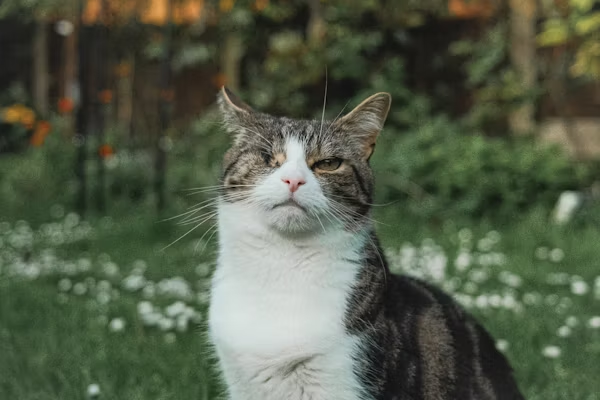As cats age, their needs and care requirements change. Senior cats, generally considered to be those over 7 years old, may face various health issues and experience changes in behavior. To ensure your feline companion enjoys a happy, healthy life in their golden years, it’s essential to adapt your care routine to their evolving needs. Here’s a comprehensive guide to help you provide the best care for your senior cat.
1. Regular Veterinary Check-ups
Why They’re Important:
- Early Detection: Regular vet visits help catch potential health issues early, such as kidney disease, diabetes, or arthritis.
- Monitoring Health: Your vet can monitor the progression of existing conditions and adjust treatments as needed.
What to Expect:
- Routine Tests: Expect blood work, urine tests, and possibly X-rays to monitor your cat’s overall health.
- Vaccinations: Ensure that your cat’s vaccinations are up to date to protect them from preventable diseases.
Tip: Schedule check-ups at least twice a year for a senior cat, as their health can change more rapidly than in younger cats.
2. Adjusting Their Diet
Why Diet Matters:
- Nutritional Needs: Senior cats may require a diet that supports joint health, maintains a healthy weight, and provides the necessary vitamins and minerals.
- Weight Management: Older cats are prone to obesity or weight loss, making diet adjustments crucial.
What to Include:
- High-Quality Protein: Look for foods with high-quality protein to support muscle mass.
- Joint Supplements: Foods containing glucosamine and chondroitin can help with arthritis.
- Hydration: Ensure your cat has access to fresh water and consider wet food to increase their fluid intake.
Tip: Consult your vet to choose a senior cat food that best fits your cat’s specific health needs.
3. Monitoring and Managing Health Conditions
Common Health Issues:
- Dental Problems: Older cats often suffer from dental disease, which can affect their appetite and overall health.
- Arthritis: Arthritis can make movement painful, affecting your cat’s mobility and quality of life.
- Kidney Disease: Senior cats are prone to kidney issues, which can be managed with diet and medication.
What to Do:
- Dental Care: Regular brushing and dental check-ups can prevent dental issues. Your vet might recommend professional cleanings.
- Pain Management: For arthritis, your vet may prescribe pain relief medications or recommend joint supplements.
- Kidney Health: Monitor your cat’s water intake and consult your vet for appropriate dietary adjustments.
Tip: Keep an eye out for changes in behavior, such as increased sleeping or changes in eating habits, as these can indicate health issues.
4. Creating a Comfortable Living Space
Why It’s Important:
- Ease of Access: Senior cats may struggle with mobility, so a comfortable, easily accessible environment is essential.
- Safe Spaces: Providing a cozy, safe space can help reduce stress and give your cat a sense of security.
What to Do:
- Soft Bedding: Provide soft, supportive bedding to make resting more comfortable.
- Easy Access: Ensure that food, water, and litter boxes are easily accessible. Consider using low-sided litter boxes or placing food and water bowls at different levels to reduce strain on your cat.
- Safe Environment: Remove any hazards that could cause injury, such as slippery rugs or sharp edges.
Tip: Consider adding ramps or steps to help your cat reach their favorite spots if they have trouble jumping.
5. Maintaining Mental Stimulation
Why It Matters:
- Preventing Boredom: Senior cats can become bored or depressed if they lack stimulation.
- Cognitive Health: Mental engagement can help keep their minds sharp.
What to Include:
- Interactive Toys: Provide toys that stimulate their natural hunting instincts, such as puzzle feeders or wand toys.
- Playtime: Engage in regular play sessions to keep them active and mentally engaged.
- Environmental Enrichment: Consider adding cat trees, scratching posts, or window perches to keep their environment interesting.
Tip: Tailor toys and activities to your cat’s physical abilities and interests.
6. Grooming and Hygiene
Why It’s Necessary:
- Maintaining Cleanliness: Older cats may groom less effectively, leading to matting or skin issues.
- Health Monitoring: Regular grooming allows you to check for lumps, bumps, or skin changes.
What to Do:
- Brushing: Brush your cat regularly to reduce matting and hairballs. Long-haired cats may need more frequent grooming.
- Nail Trimming: Keep your cat’s nails trimmed to prevent discomfort or injury.
- Ear and Eye Care: Check your cat’s ears and eyes regularly for signs of infection or discharge.
Tip: Use gentle grooming tools and consult your vet if you notice any changes in your cat’s coat or skin.
7. Understanding Behavioral Changes
Why It’s Important:
- Identifying Issues: Changes in behavior can indicate health problems or discomfort.
- Providing Comfort: Understanding these changes helps you provide better care and comfort.
Common Changes:
- Increased Sleep: Older cats may sleep more and be less active, which is normal but should be monitored.
- Changes in Appetite: Alterations in eating habits can indicate dental problems, digestive issues, or other health concerns.
- Behavioral Shifts: Increased irritability or withdrawal could be signs of pain or cognitive decline.
Tip: Track changes in your cat’s behavior and consult your vet if you notice significant or concerning changes.
Conclusion
Caring for a senior cat involves understanding and adapting to their changing needs. Regular veterinary visits, a balanced diet, managing health conditions, creating a comfortable living space, maintaining mental stimulation, and keeping up with grooming are all key to ensuring your senior feline enjoys a high quality of life. By paying close attention to their physical and emotional well-being, you can help your senior cat live their golden years happily and comfortably.
For personalized advice and guidance, always consult your veterinarian. They can provide tailored recommendations based on your cat’s specific health needs and conditions.











Leave a Reply